Rablet IV Injection contains the active component Rabeprazole. This medication belongs to a class of drugs known as proton pump inhibitors (PPIs). It is commonly prescribed to treat excess stomach acid production conditions, such as gastroesophageal reflux disease (GERD), gastric ulcers, and Zollinger-Ellison syndrome.
Zollinger-Ellison syndrome is a rare condition characterized by the overproduction of stomach acid. Rablet IV Injection helps relieve excess stomach acid production symptoms, such as heartburn, regurgitation, chest pain, and acid indigestion. Reducing the amount of acid in the stomach can alleviate discomfort and improve quality of life.
This medication is contraindicated in individuals with known hypersensitivity or allergic reactions to Rablet IV Injection or other ingredients in the formulation. Signs of an allergic reaction may include rash, itching, swelling, severe dizziness, or difficulty breathing. It is not typically recommended for children under 18, as its safety and efficacy in this population have not been well established. Alternative treatment options may be considered for pediatric patients with similar conditions. Rablet IV Injection can potentially increase the blood levels of methotrexate, a medication used to treat certain cancers and autoimmune diseases. Co-administration of this medication and high-dose methotrexate is not recommended due to the potential for increased toxicity of methotrexate.
Therapeutic Effects of Rablet Iv Injection
Pregnancy
The safety of Rablet IV Injection use during pregnancy has not been extensively studied, and it is generally recommended to consult a doctor before taking medication.
Breast Feeding
Rablet IV Injection can pass into breast milk, and its safety during breastfeeding has not been established conclusively. It is generally recommended to exercise caution and consult with a healthcare professional before taking this medication while breastfeeding.
Lungs
If you have a lung condition or concerns related to your lungs, it is important to consult with a healthcare professional who can evaluate your specific situation and provide appropriate guidance and treatment options.
Liver
Rablet IV Injection is primarily metabolized in the liver, and individuals with liver disease or impaired liver function may require caution or dose adjustments when taking this medication.
Alcohol
When considering the safety of Rablet IV Injection about alcohol consumption, it is generally recommended to avoid excessive alcohol intake. Alcohol can increase the production of stomach acid and irritate the gastrointestinal tract, which may exacerbate the conditions.
Driving
Rablet IV Injection may cause dizziness or drowsiness in some individuals. If you experience these side effects, avoiding activities requiring mental alertness, such as driving or operating machinery, is important.
Serious:
- Severe allergic reactions, including swelling of the face, lips, tongue, or throat, and difficulty breathing or swallowing
- Severe stomach pain
- Persistent diarrhea
- Muscle weakness or muscle cramps
- Changes in heartbeat
- Unusual tiredness or fatigue
- Yellowing of the skin or eyes (jaundice)
- Dark urine or pale stools
- Signs of infection, such as fever or sore throat
Common:
- Headache
- Diarrhea
- Abdominal pain
- Nausea
- Flatulence (excessive gas)
- Constipation
- Dizziness
- Rash
- Back pain
Rablet IV Injection can be taken with or without food. However, taking it before a meal is generally recommended for optimal effectiveness. Taking it on an empty stomach allows it to be absorbed more quickly and efficiently. Follow the instructions provided by your healthcare provider or the medication label regarding the timing and administration.
Rablet IV Injection is commonly used to manage conditions such as GERD and gastric ulcers on a long-term basis. However, the duration of treatment will depend on your specific condition and individual response to the medication. It is important to follow the guidance of your healthcare provider and attend regular follow-up appointments to assess the ongoing need for it and to monitor for any potential side effects or complications associated with long-term use.
Rablet IV Injections can cause common side effects like headache, diarrhea, abdominal pain, nausea, and flatulence. Rare but serious side effects include severe allergic reactions, stomach pain, persistent diarrhea, muscle weakness, changes in heartbeat, and signs of liver problems.
Rablet IV Injection is primarily eliminated from the body through the kidneys. Individuals with severe kidney impairment may require dose adjustments or close monitoring when using it. To ensure safe and appropriate medication use, it is important to inform your healthcare provider about kidney-related conditions or impaired kidney function.
Rablet IV Injection is not intended to relieve heartburn or acid reflux symptoms immediately. It is a delayed-release medication that is designed to provide long-term suppression of stomach acid production. Antacids or other short-acting medications may be more suitable for immediate relief of symptoms. It is important to follow your healthcare provider's recommendations regarding using it for your specific condition.
Molecule name: Rabeprazole | Therapeutic class: Antacid Drug |
Pharmacological class: Proton Pump Inhibitors
| Indications: 1. Gastroesophageal reflux disease (GERD) 2. Gastric ulcers 3. Duodenal ulcers 4. Zollinger-Ellison syndrome |






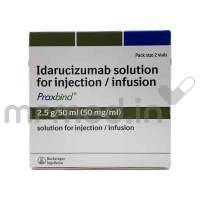
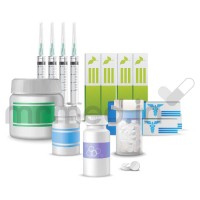
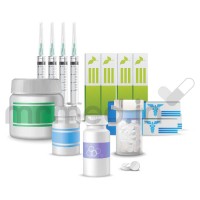
-200x200.jpg)


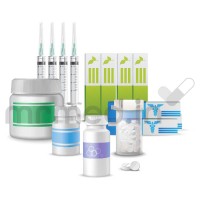
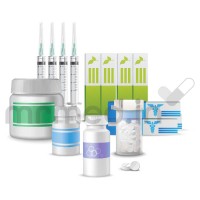
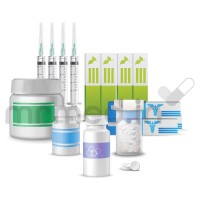
-200x200.jpg)